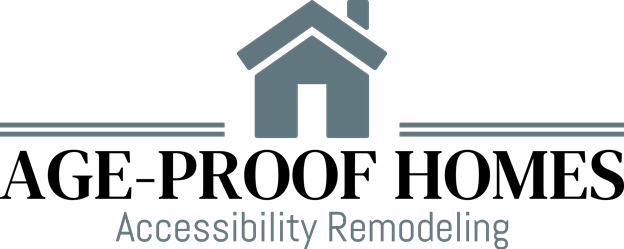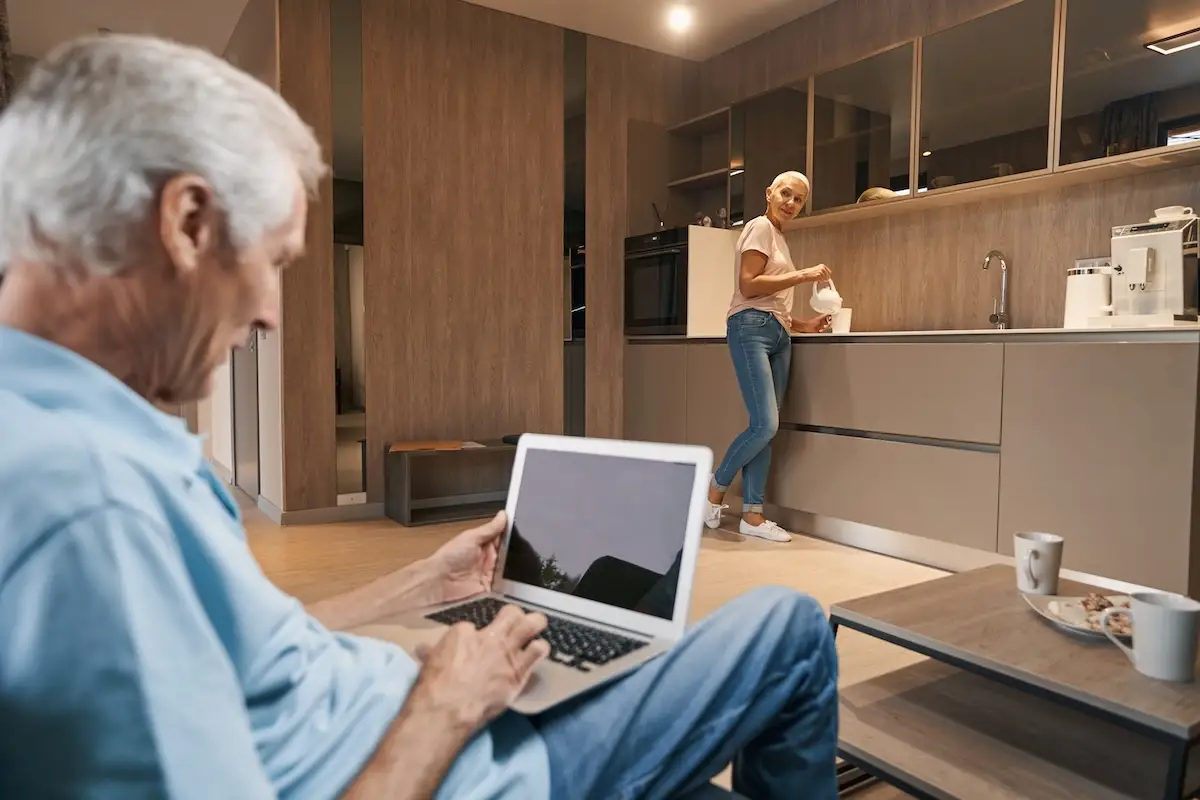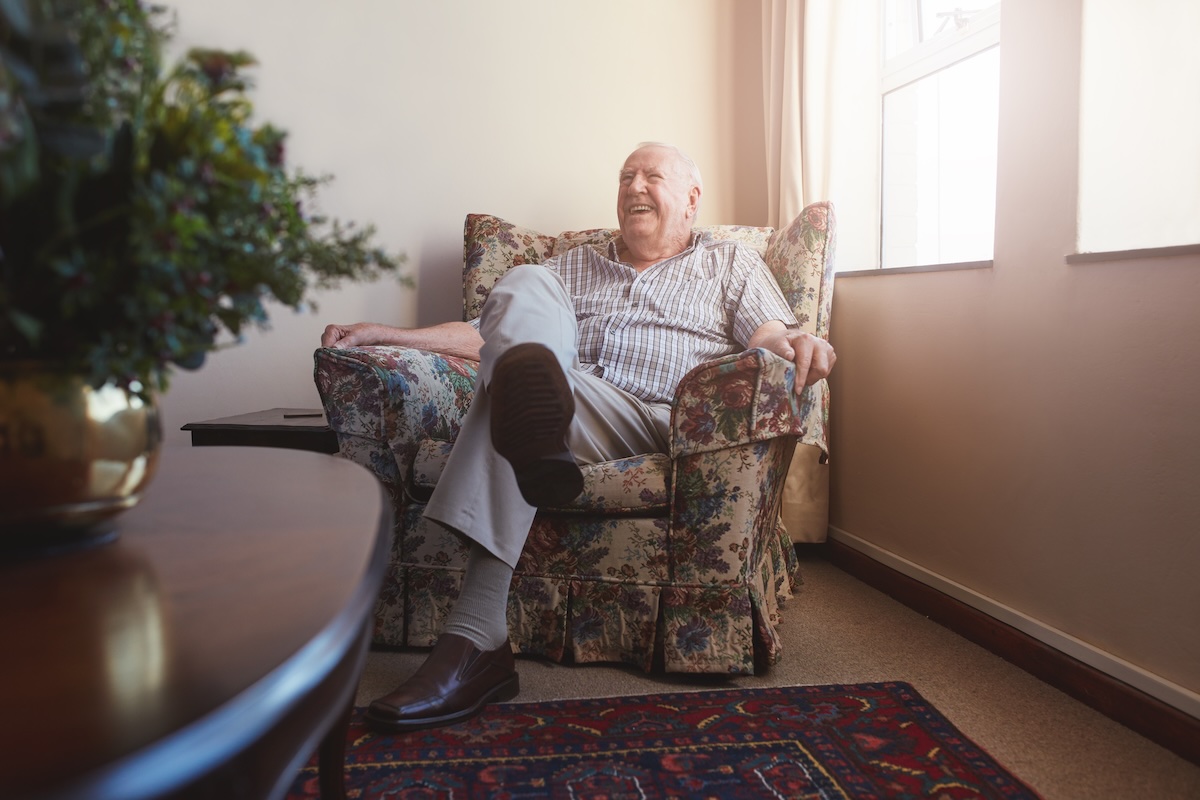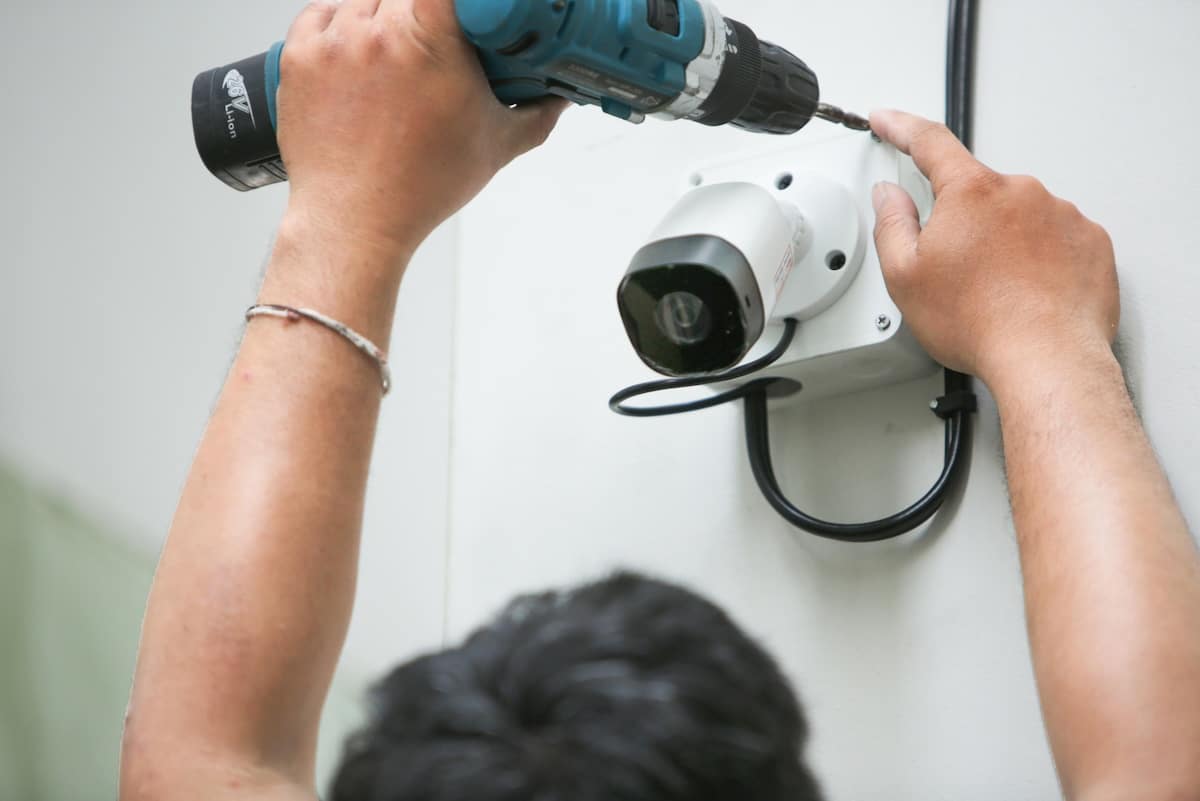As people age, maintaining independence while ensuring safety becomes a priority. Fortunately, smart home technology has emerged as a powerful tool for seniors, offering solutions that allow individuals to age in place with greater ease, comfort, and security. With a combination of automated systems and smart devices, seniors can manage their homes more efficiently, prevent accidents, and enhance their overall quality of life.
In this blog, we’ll explore the various ways home automation can significantly improve the lives of seniors, from lighting and security systems to health monitoring and accessibility tools.
1. What is Smart Home Technology for Seniors?
Smart home technology refers to devices that use the internet to connect with other devices, allowing them to be controlled remotely or automatically. These devices can be integrated into any home, transforming it into a smart home equipped with advanced systems that cater specifically to the needs of seniors.
For seniors, smart home devices are invaluable because they reduce physical effort, improve accessibility, and provide a sense of security. These devices include:
- Voice-activated assistants (like Alexa or Google Assistant)
- Automated lighting systems
- Smart thermostats
- Security and surveillance cameras
- Health monitoring systems
- Automated door locks
- Motion detectors
- Fall detection devices
By integrating these technologies into their homes, seniors can enjoy greater independence and safety, as many of these devices help automate tasks and monitor health conditions without constant supervision.
2. Smart Lighting Systems: A Brighter Future for Seniors
Lighting is a critical part of a senior’s home, particularly when it comes to preventing falls. Poor lighting, especially at night, can increase the risk of accidents. With smart lighting, seniors can enhance their safety and convenience without having to physically adjust switches or fumble around in the dark.
Benefits of Smart Lighting for Seniors:
- Motion-activated lights: These lights turn on automatically when motion is detected, which is especially helpful when seniors need to get up at night to use the restroom or move around the house. No more fumbling for light switches in the dark!
- Voice-controlled lighting: Seniors can use voice commands to turn on/off or dim the lights, making it easier to adjust their environment without having to physically get up.
- Remote control via smartphone or tablet: Seniors or caregivers can control lighting from a smartphone app, adjusting the lights in different areas of the home from the comfort of a chair or bed.
- Dimmable lighting: Adjust the brightness levels to prevent glare and ensure optimal lighting conditions throughout the day and night. For example, soft lighting is perfect for the evening, while brighter lights are better during the day.
These features not only enhance safety but also provide greater flexibility and control over the home environment.
3. Smart Thermostats: Comfort and Convenience at Your Fingertips
Maintaining a comfortable indoor temperature is crucial for seniors, especially those with mobility issues or health conditions that make it difficult to adjust the thermostat manually. Smart thermostats help manage temperature control effortlessly and intelligently, ensuring that the home stays at a comfortable temperature without needing to constantly adjust the settings.
Why Smart Thermostats Are Great for Seniors:
- Automated temperature adjustments: Smart thermostats learn your schedule and adjust the temperature based on your preferences. For instance, the thermostat can lower the temperature when you’re not home and warm it up just before you arrive, ensuring comfort and energy efficiency.
- Remote control: Seniors can adjust the temperature remotely using a smartphone, tablet, or voice control, eliminating the need to physically get up to change the settings.
- Energy savings: Smart thermostats help reduce heating and cooling costs by optimizing the home’s energy use. By programming the system to only run when necessary, seniors can enjoy comfort without worrying about high energy bills.
- Compatibility with smart home assistants: Many smart thermostats work seamlessly with voice assistants like Amazon Alexa or Google Assistant, so seniors can adjust their home’s temperature with simple voice commands.
Smart thermostats like Nest and Ecobee are widely recommended for seniors due to their user-friendly interfaces and seamless integration with other smart home devices.
4. Smart Home Security: Peace of Mind for Seniors
Home security is a major concern for seniors, particularly those living alone. Smart security systems offer real-time monitoring, alerts, and remote control, ensuring seniors feel secure in their homes. These systems can alert caregivers or family members in case of an emergency and provide peace of mind for both seniors and their loved ones.
Benefits of Smart Home Security for Seniors:
- Smart cameras and video doorbells: Devices like Ring or Nest Cam let seniors monitor who is at the door or around the house. This is especially helpful for preventing unwanted visitors or burglars.
- Automated door locks: Seniors can lock and unlock doors remotely using a smartphone or voice commands, ensuring that their home is always secure, even if they forget to lock the door after a visitor leaves.
- Emergency alerts: In the event of a break-in, motion detection, or an emergency, the system sends alerts to the senior’s phone and can notify emergency services if necessary.
- Fall detection: Many smart home systems are integrated with wearable health trackers or fall detection devices that notify caregivers or emergency services if a senior falls and is unable to get up.
Smart security systems can be customized with features like automated door locks, motion sensors, and 24/7 monitoring for optimal protection.
5. Smart Health Monitoring: Keeping Track of Well-Being
Health is a primary concern for seniors, and smart health monitoring devices can be a game-changer in managing chronic conditions, keeping track of vital signs, and providing caregivers with valuable health data in real time. These tools help seniors take charge of their health from the comfort of home.
Examples of Smart Health Devices for Seniors:
- Wearable health trackers: Devices like Fitbit, Apple Watch, or Garmin track heart rate, steps, sleep patterns, and other vital signs, providing valuable health insights for seniors and their caregivers.
- Medication reminders: Smart pill dispensers like Hero or MedMinder automatically dispense medications at scheduled times and send reminders to seniors to ensure they never miss a dose.
- Smart glucose meters: For seniors with diabetes, smart glucose meters allow them to monitor their blood sugar levels and send data to caregivers or healthcare providers for easy tracking.
- Fall detection devices: Wearables like Life Alert and Apple Watch come with fall detection sensors that notify emergency contacts if a fall occurs, ensuring immediate help is on the way.
These devices give seniors and caregivers a more efficient way to manage health conditions and prevent potential emergencies.
6. Smart Home Assistants: Simplifying Daily Life
Voice-controlled assistants like Amazon Alexa, Google Assistant, and Apple Siri play a crucial role in improving the independence of seniors. These assistants can perform a wide range of tasks, from controlling smart home devices to answering questions, setting reminders, and making phone calls.
How Smart Assistants Help Seniors:
- Voice commands: Seniors can use voice commands to control lights, temperature, TV, and other smart devices, eliminating the need to physically operate switches or buttons.
- Setting reminders: Smart assistants can remind seniors to take their medications, attend appointments, or complete daily tasks, helping them stay organized and independent.
- Making phone calls: Seniors can make phone calls hands-free by simply asking the assistant to dial a number or call a contact, which is especially helpful if they have mobility issues or limited dexterity.
These devices not only make life easier but also promote a greater sense of independence for seniors.
Integrating smart home technology into the homes of seniors can significantly improve their safety, comfort, and independence. From automated lighting to health monitoring and security systems, these tools allow seniors to live with more autonomy while ensuring that their homes are secure and their well-being is constantly monitored. As technology continues to evolve, the possibilities for enhancing the lives of seniors are endless.
By incorporating smart home solutions, seniors can enjoy greater peace of mind and a higher quality of life, all while maintaining the ability to age in place with dignity and safety.
If you’re ready to start integrating smart technology into your home, visit AgeProofHomes.com for more information on home modifications that can help you live independently and safely.
FAQs (Frequently Asked Questions)
1. How does smart home technology improve safety for seniors?
Smart home devices like automated lighting, motion sensors, fall detection systems, and smart security cameras help seniors navigate their environment more safely, reduce the risk of accidents, and provide real-time alerts in case of an emergency.
2. What are the most essential smart home devices for seniors?
The most useful smart home devices for seniors include:
• Voice-activated assistants
• Smart thermostats
• Smart lighting systems
• Security cameras
• Health tracking devices
• Automated door locks
3. Are smart home devices easy for seniors to use?
Yes, many smart home devices are designed with ease of use in mind, featuring simple interfaces and voice-controlled functionality. This makes them particularly suitable for seniors who may not be tech-savvy.
4. Can smart home technology help seniors with mobility issues?
Absolutely! Devices like voice-controlled assistants, smart lighting, and automated thermostats allow seniors with mobility challenges to control their environment without needing to physically adjust settings or get up.
5. How can smart health monitoring devices assist seniors?
Smart health devices, such as wearable trackers, smart glucose meters, and medication reminder systems, help seniors monitor their health in real-time, making it easier for them and their caregivers to track vital signs, medication schedules, and overall well-being.



